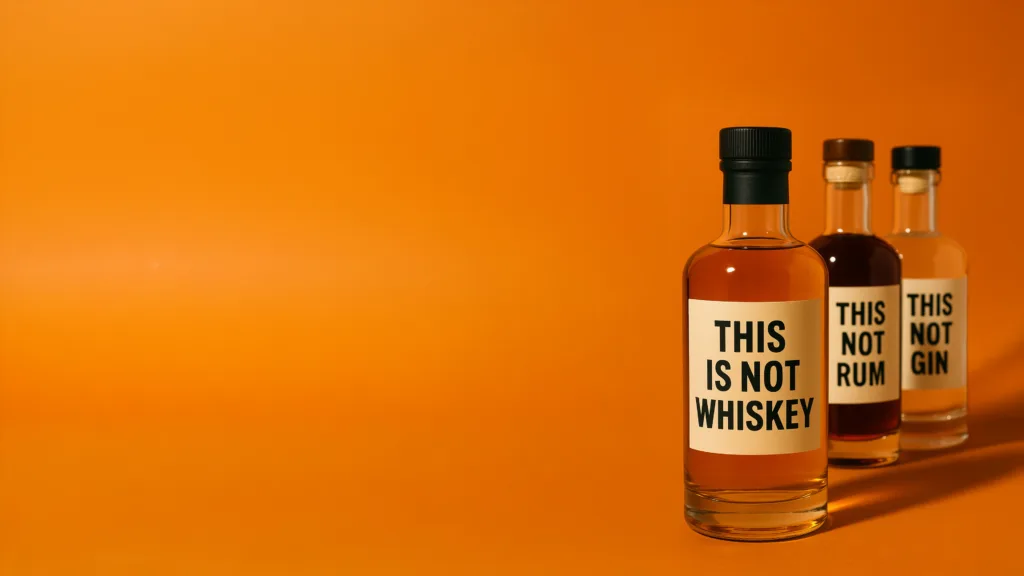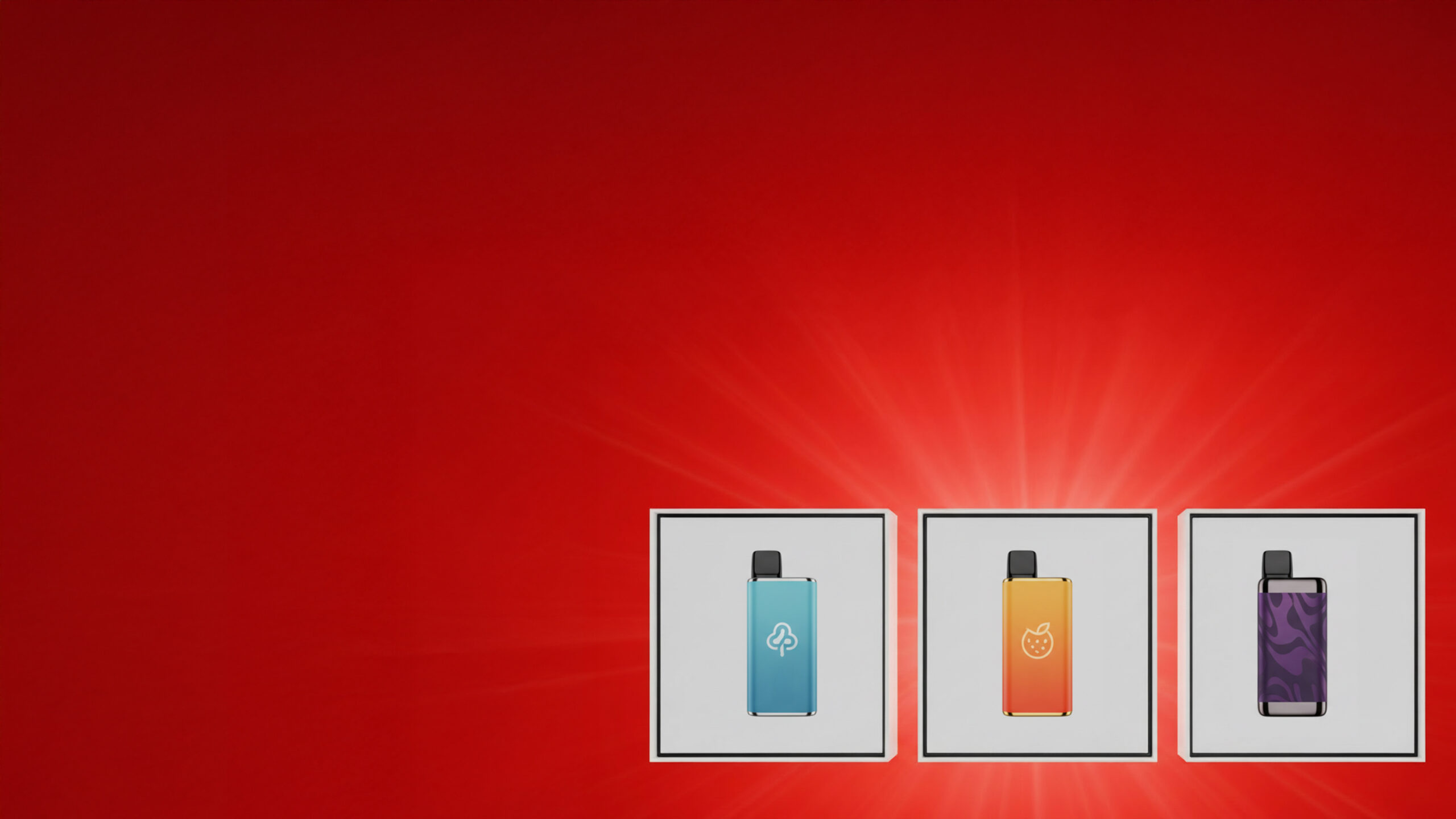
This is
not whiskey,
Gin or Rum.
This is
not whiskey,
Gin or Rum.
from
Can a non-alcoholic alternative to spirits advertise with the word “rum”, “whiskey” or “gin” if the label clearly states “This is not”? And can you call a drink “American Malt” even though it resembles whiskey but doesn’t contain a drop of alcohol?
What is it all about?
The case concerned a company that sells non-alcoholic alternatives to classic spirits such as rum, gin and whiskey. The bottles and advertising featured phrases such as “This is not rum”, “alcohol-free alternative to gin” and “tastes like whiskey”.
This was a thorn in the side of the Schutzverband der Spirituosen-Industrie e.V., which saw it as a violation of the European Spirits Regulation and competition law.
The central question was therefore: How far can a manufacturer of non-alcoholic alternatives go when alluding to well-known flavor profiles and spirit categories without exceeding the legal limits of trademark protection?
The judgment of the Hamburg Regional Court
With Judgment of July 24, 2025 – Ref. 416 HKO 51/23 the Hamburg Regional Court largely ruled in favor of the plaintiff association. The judges initially clarified that terms such as “rum”, “gin” or “whiskey” are protected spirits designations within the meaning of the European Spirits Regulation. They may only be used for products that meet all the requirements of these categories – in particular the prescribed alcohol content.
The drinks of the defendant company, on the other hand, contained a maximum of 0.5% alcohol by volume – too little to be considered spirits. From the court’s point of view, the matter was clear: the terms “rum”, “gin” and “whiskey” may not even appear in a modified or negating form. Even a tongue-in-cheek “This is not Rum” does not help. The protection of the designations is absolute, according to the Hamburg judges: even the mere echo of a protected category is sufficient to assume unauthorized use.
It is irrelevant whether designations such as “This is not Rum”,
“This is not Gin” and “This is not Whiskey” – which are linguistically distinct from the spirit drink in question, but nevertheless establish a direct mental link to the respective protected spirit drink category – actually mislead consumers.
No exception
The defendant invoked an exception in the Spirits Ordinance. According to this, certain designations may be used if a spirit that meets the category requirements is actually used in the production process. However, this did not help in the specific case: the court found that the alleged “base essence” did not even reach the required alcohol content and was therefore not a genuine spirit within the meaning of the regulation.
The court also rejected the attempt to suspend the proceedings due to parallel ECJ proceedings. National legal protection had to be continued; the protection of designations under EU law was clearly formulated and did not constitute a disproportionate interference with the freedom of economic activity.
American Malt may stay
However, the court took a different view of the term “American Malt”, which was also challenged. According to the Regional Court, this formulation did not take up a protected category name and did not reveal any compelling reference to whiskey in the overall impression. Although the term “malt” is reminiscent of malt and thus remotely of whiskey, the combination with the terms typical for whiskey such as “single” or “blended” is missing. The term is therefore not misleading and is permissible.
The court also deemed the label “alcohol-free” to be unobjectionable. Consumers do not understand the term in connection with drinks of this type as 0.0% alcohol, but as an indication of a significantly reduced alcohol content. A residual alcohol content of less than 0.3% by volume was therefore not misleading.
What does this mean in practice?
The ruling is a clear setback for all those manufacturers who market their non-alcoholic alternatives with tongue-in-cheek or ironic references to well-known spirits. Creativity is still allowed – but not at the expense of trademark protection. Terms such as “This is not rum” or “Gin alternative” will be taboo in future if the product does not meet the formal criteria of the respective category.
Instead, manufacturers should rely on neutral or imaginative names that hint at flavor associations but do not use a legally protected term. “American Malt” is a good example here: it sounds pithy, arouses interest, but remains on the safe side.
Producers can also breathe a sigh of relief when it comes to the “alcohol-free” claim. As long as the alcohol content remains minimal and the labeling is clear and transparent, there is no risk of misleading consumers. However, it is important that marketing and product presentation remain consistent – if you promise “alcohol-free” on the front, you should not hide any misleading percentages on the back.
Conclusion
With this ruling, the Hamburg Regional Court has made it unmistakably clear: Anyone selling non-alcoholic alternatives to spirits may not use protected designations – not even with an ironic undertone or negating addition. The protection of designations is absolute and protects not only against deception, but also against mental imitation.
At the same time, however, the decision also opens up scope for creativity: fantasy designations such as “American Malt” remain permissible, and the label “alcohol-free” is unobjectionable as long as the residual alcohol content is low and the overall impression is correct. For the non-alcoholic distillates sector, this means that the path to creative marketing remains open – but within clear legal boundaries.
We are happy to
advise you about
Competition law!







